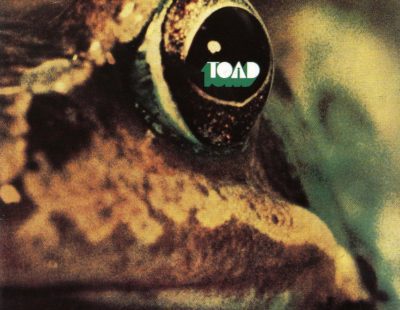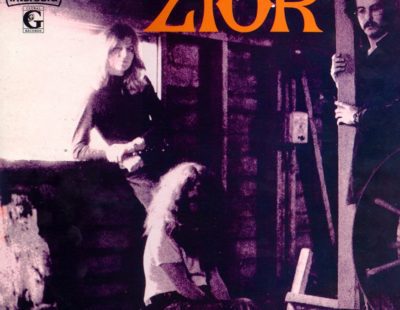
Primitive Origins is a column where we’ll look back at proto-metal and early metal that deserves a bit of your battered eardrum’s attention. We’re keeping it loose and easy here: there’s no strict guidelines other than it’s gotta be old, it helps if it’s obscure, and it’s gotta rock out surprisingly hard for its context. Pscyh-ed out proto-metal from the late ’60s? Of course. Early attempts at doom metal from the ’70s? Hell yeah. Underground Soviet metal from the early ’80s? Sure. Bring it on. Bring it all on.
This time around, we’re looking at a band that dips its toes into early progressive rock, proto-metal, and proto-occult rock all at once: the mysterious Salem Mass. Info is foggy, but looks like these guys were generally based in Idaho although made some attempts at toughing it out in Portland as management was out there.
Also, lore has it that one of the first Moog synthesizers (serial number 23) was used for the recording of this album

Witch Burning, which was released in 1971, starts off ambitiously, with the 10-minute title track offering up all kinds of Moog soloing, great riffs, and progressive leanings. And talk about vibe: maybe it’s that insane cover art talking, but it’s easy to get caught up in the occult-rock feel this one offers up.
However, next cut “My Sweet Jane” shows the lack of focus proto-metal bands usually had, as they didn’t fully surrender to heavy sounds, instead skipping around to lighter fare like this, which has zero bite, although the drummer gets kudos for an enthusiastic performance. “Why” ends off side one on a similarly confusing note: why so happy, guys? Suddenly it’s more Monkees than Black Widow, which creates a big barrier to enjoyment here. But, don’t go away just yet.
Side two kicks off with “You Can’t Run My Life,” a heavy Deep Purple-by-way-of-southern-rock slinkster, Moog prominent, prog and proto-occult leanings gone, but some serious space rock effects coming to play, and that lead riff is totally killer. “You’re Just a Dream” is cool but not too heavy, the band at this point in the album really letting the listener know that the title track and the cover art are pretty deceptive, as the rest of the album is nowhere near what they promise. Still, we gotta keep exploring on the basis of that stuff alone, so here we go into the final stretch.

“Bare Tree” starts off spooky, and brings back some of the more atmospheric, near-occult leanings that the band did so well earlier in the album; it’s a cool, atmospheric tune, and closer “The Drifter” has some insane synth soloing and an almost-menacing riff; it rocks hard but still happy, further confounding anyone who liked what they heard with the opening cut.
Us, we’re metalheads, so we’re most interested in the 10 minutes that start off this album, and for those 10 minutes alone, Salem Mass are worthy of some exploration. The rest of the album has its moments as well, but they’re just not the black mass that the first song promises. So it goes with proto-metal, the bands very often remaining non-committal, dropping ’60s pop after they’ve left us at the sabbath, wondering what the heck just happened. In the case of Salem Mass, a lot and a little, all at once.

Salem Mass’ Witch Burning – The Decibel breakdown:
Do I need to be stoned to listen to this?: We mentioned the opening song was 10 minutes long and had tons of keyboard solos, right?
Heaviness factor: Inconsistent, and more in vibe than sonics; they weren’t giving Sabbath a run for their money but they were threatening to meet them at the sacrifice. Of course, neither band showed.
Obscura Triviuma: This album was recorded in a bar-turned-recording studio.
Other albums: Nope. This odd document is the only album Salem Mass released.
Related bands: We find it hard to believe that any band that can play the Moog with that much gusto didn’t feature members who went on to rock with other bands, but, nope, none that we could find in our hunting.
Alright, fine, if you must: Turn on, tune in, drop out.





